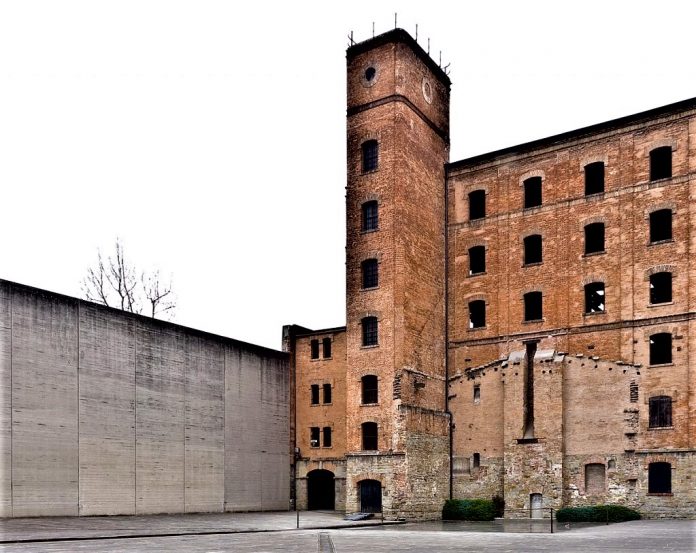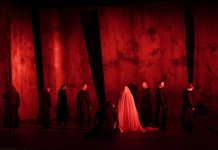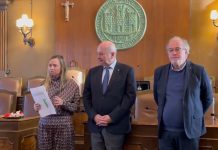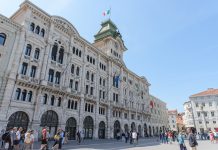
by Alessandra Ressa
Trieste commemorates the International Holocaust Remembrance Day on January 27th with a rich program of events sponsored by the city’s municipality in collaboration with local museums that will stretch for a whole week. Several films, plays, documentaries, lectures and conferences will be held in the city’s auditoriums with free admission, while the Rossetti theater will stage the chilling Commandant of Auschwitz.
Events will begin on January 25th at Museum Revoltella at 10 and again at 12 with Matricola 75190, based on Italian Senator and Auschwitz survivor Liliana Segrè’s autobiography. In the afternoon, at 5.30 at Palazzo Gopcevich the Bobi Bazlen Hall will host the documentary Zoran Music. Un Pittore a Dachau (Zoran Music. Painter at Dachau) by Giampaolo Penco. In the evening, from January 25th to January 27th, the Rossetti theater will stage Commandant of Auschwitz, a collection of memoirs by war criminal Rudolf Franz Ferdinand Höss, the infamous German SS officer who tested and implemented means to accelerate Hitler’s order to systematically exterminate the Jewish population of nazi-occupied Europe. Höss was the longest-serving commandant of Auschwitz concentration and extermination camp. The theater adaptation is by Riccardo Maranzana.
On Thursday, January 26th at Museo Revoltella the auditorium will host the conference Le sfide della memoria. La Risiera di San Sabba tra arte e architettura, the transformation of Risiera di San Sabba, Trieste’s former concentration camp and only extermination camp in Italy, into today’s museum.
On January 27th, Day of Remembrance, at 9 a.m. at the jailhouse in via Coroneo, Trieste’s Police department will remember chief of police Giovanni Palatucci, incarcerated in Trieste and deported to Dachau where he died in 1945. At 9:30, a silent march will reach Trieste’s station, departure place between 1943 and 1945 for the convoys headed to the concentration camps of Northern and Eastern Europe. At 11, in the central courtyard of the Risiera di San Sabba, local government and religious representatives will commemorate the victims of nazi and fascist regimes of WWII. After the traditional ceremony, at 12, a photo exhibit organized by Anna Krekic, Rammentare le vittime, ammonire i viventi. La Risiera di San Sabba a Trieste will display 20 impressive images by photographer Marino Jerman.
On 28th and 29th January, again with free admission, visitors of the Risiera di San Sabba museum will be able to join guided tours of the site at 11 and 3. Reservation for the tours is recommended by writing an email to risierasansabba@comune.trieste.it. On Monday January 30th at Revoltella Museum Auditorium at 8 p.m. Tristano Matta will introduce the film Les Enfants du 209, Rue Saint-Maur Paris 10ème by Ruth Zylberman. The film will be in French with Italian subtitles. On Tuesday, January 31st events are back at Museo Revoltella at 10 and 12 with the play based on the life of Arpad Weisz Dal campo di calcio ad Auschwitz. Storia di un allenatore ebreo e della sua famiglia(From the football field to Auschwitz, story of a Jewish coach and his family) . Weisz was the coach of the popular A-league football team Bologna when racial laws were ratified in Italy. After several attempts at escaping abroad, he and his family were deported to Auschwitz, from where they never came back.

In the days immediately after the beginning of the celebrations 15 new stumbling stones will be placed outside buildings around Trieste, to remember the victims of the Holocaust who lived there. For the first time since the beginning of this ritual by Austrial artist Gunter Demnig in 1992, one of the stones will not have a Jewish name, but will be dedicated to a Triestino girl of gipsy origins.
Each year the International Holocaust Remembrance Day commemorates the victims of the Shoah, which resulted in the murder of one third of the Jewish people, along with countless members of other minorities between 1933 and 1945 by nazi Germany. 27th January was chosen to remember the date when the Auschwitz concentration camp was liberated by the Red Army in 1945.





























